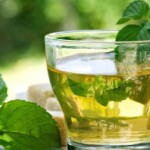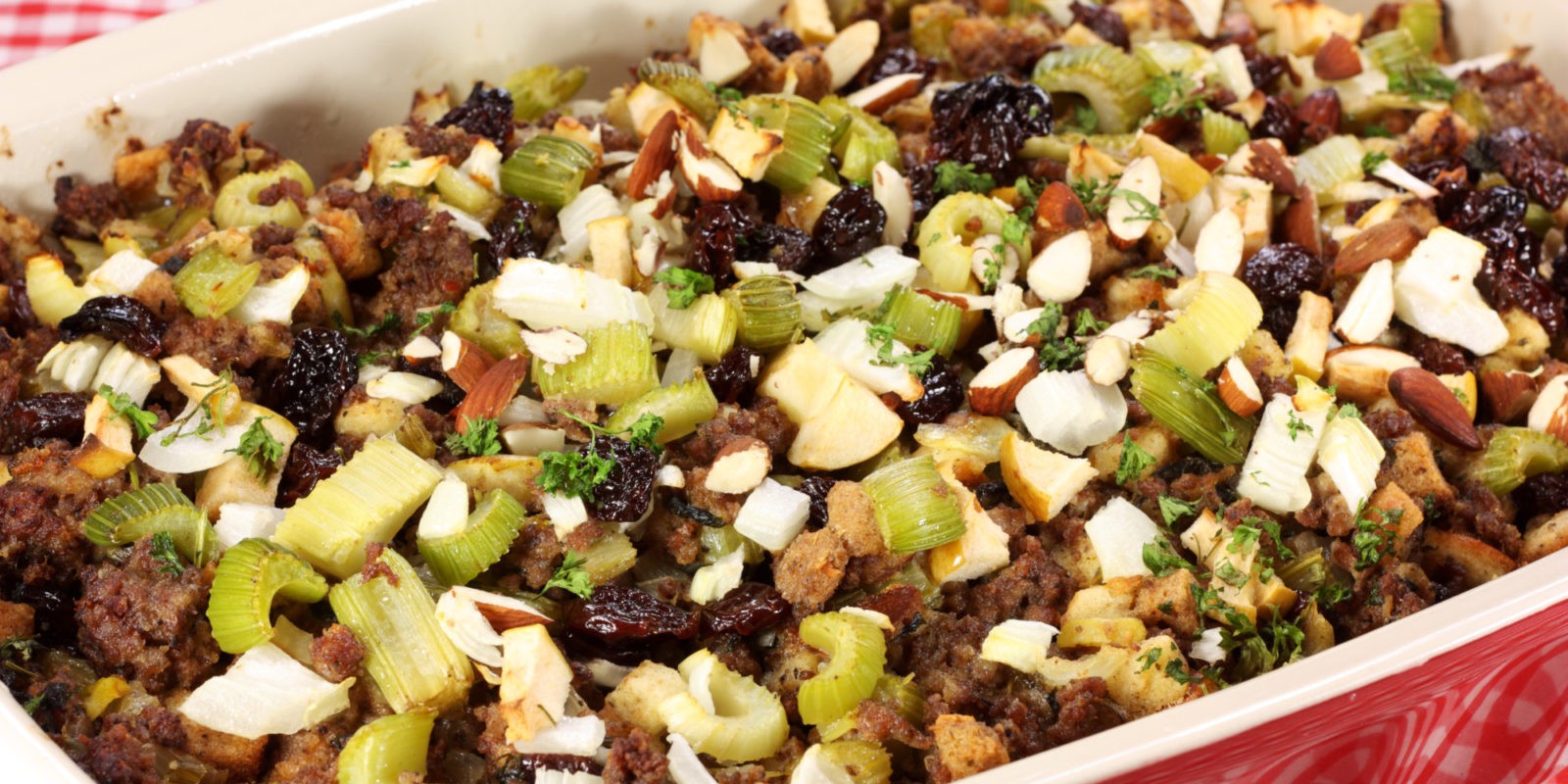A Quick Reference of Food, Herbs and Meditation by Season
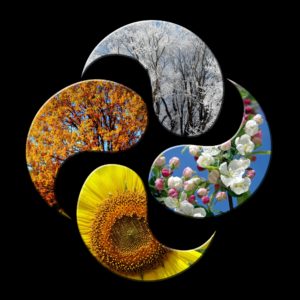
Each season gives us important clues as to what is happening within our bodies and how to best adjust to the changing weather. Traditional healing systems, such as traditional Chinese medicine, as well as Ayurveda, provide a structure to help us discern what foods and lifestyle choices will best support us as we cycle through the seasons. When we pay attention to nature’s cues and allow our life practices to mirror the seasonal transformations, we can better understand how our bodies might be feeling. We tend to not only feel better, but are also better able to prevent illnesses and disharmonies that typically occur during seasonal transitions and extremes, allowing us to choose activities that will be optimal for our mental and physical health.
You can use the seasons to not only understand the types of ailments you are more susceptible to during season change and extremes, but also you can use nature to guide food and herb choices throughout the year to maximize your own health and well being. Here is a quick reference of food, qi gong, and food choices for each season.
Spring
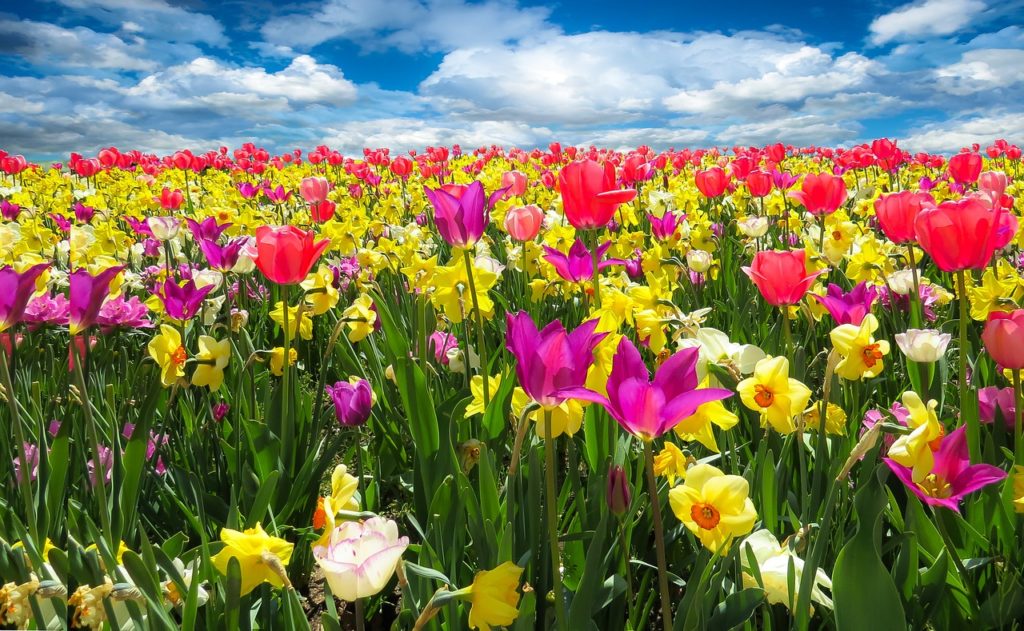
Spring is a time of beginnings when energy is starting to ascend after the still, quiet time of winter. New green buds push their way through the earth with renewed vigor to begin life.
Begins at the Vernal Equinox. This will be around March 21 in the Northern Hemisphere and around September 21 in the Southern Hemisphere. On the equinox, day and night are of equal length.
Natural cues: The days are lengthening, and the air is warming up more with each day. Rain falls frequently, bringing new life to the plants. Some flowers blossom; new leaves begin to appear on the trees. Hibernating animals emerge, and baby animals are born. Energy is high as the Earth seems to re-awaken and new life springs forth everywhere.
Our bodies crave cleansing and rejuvenation. Our minds are open to new beginnings, a fresh start, and the excitement of blossoming life all around.
Cleansing and health are the focus at this time of year. Increased activity will get that energy flowing. Acupuncture or acupressure can help with cleansing. Spring is associated with the direction East, where we see the sunrise and the dawn of new beginnings.
In Chinese medicine, Spring corresponds to the liver and the wood element. The liver functions as our filtration and detoxification system to eliminate toxins, be they environmental, emotional, hormonal, etc. In Chinese medicine, the liver is responsible for regulating the smooth flow of Qi in the body. It rules the tendons and muscles in the body, and you will often see in folks that have stuck liver Qi that they also have sore muscles, especially of the neck and shoulders. The energy of spring is expansive and ascendant.
Here are some tips for navigating spring energy:
- Get moving! Exercise helps the Qi to flow, and if you can exercise in an inspiring and beautiful outdoor setting, the benefits will multiply.
- Sour flavors are beneficial at this time. Try lemon water in the morning, add a pickle to your sandwich, or use a vinegar-based salad dressing.
- Herbs that strengthen the blood like goji or lycii berries are an excellent tonic for the liver and the eyes. They can increase energy levels, libido, reduce blood pressure, lower cholesterol, improve vision, and are high in antioxidants.
- Eat plenty of Greens which is the color associated with the liver and wood element – this includes dark green leafies, are perhaps the most excellent springtime tonic food. Kale, bok choy, spinach, swiss chard, dandelion greens (perhaps one of the best), beet greens, mustard greens are all wonderful foods to eat in great abundance. Also, other green veggies like broccoli and brussel sprouts are excellent. Be sure to cook your greens, either steaming them or sauteeing them. It is still cold outside, meaning your body may need some extra assistance metabolizing your food. Cooking them helps your body better digest them.
- Eat foods that strengthen the blood, such as seaweeds, beets, and berries. Seaweed contain the same minerals found in our blood and are a great blood tonic. Beets are an excellent liver tonic and enrich the liver blood. Berries such as raspberries, blackberries, blueberries, and strawberries are also great blood nourishing options.
- Excellent choices and easy to find herbs that can improve liver functioning are: Dandelion (taraxacum officinale), milk thistle (silybarum marianum), and chamomile (Matricaria Recutia or German Chamomile and Anthemis nobiles or Roman Chamomile). Dandelion root helps remove metabolic waste from the blood, thus supporting liver functioning. The leaves have a high content of Vitamin A (almost as much as carrots) and B, C, and G, as well as iron, magnesium, zinc, potassium, manganese, copper, choline, calcium, boron, and silicon. The leaves are a diuretic and can help detoxify the system through urination, while not depleting your mineral levels. Note: you should avoid dandelion root if you have a blockage of your bile ducts, gallbladder inflammation, or intestinal blockage. Milk thistle aids the liver in processing toxins, as well as reduces liver inflammation and fibrosis. Chamomile flowers are anti-inflammatory, antispasmodic, carminative, and sedative, helping to settle the stomach, relax the body and mind, and can help alleviate digestive upset, menstrual cramps, and tension headaches.
- Stretch frequently to release toxins, get your blood flowing, and maintain the health and flexibility of your muscles and tendons.
- Plant a garden. Enjoy getting your hands dirty!
- Fly a kite. Spring is the time for wind, which brings renewal, stripping away all that we no longer need.
- Meditation: There is a sound meditation in qi gong called the healing sounds. These sounds can help you release emotions and energy that have been stored in your organs (either recently or a long time ago), consuming useful energy, that can be then freed for other functions. To make the liver sound bring up a green color to nourish your liver. As you inhale raise your hand palm up, stretching the right hand up slightly higher to give your right side and your liver a nice stretch. As you exhale, bring your hands down as you make the “Shh” sound, expelling any stored emotions, like anger, frustration, or rage that your liver has been holding or carrying. Then smile to your liver, embracing it with unconditional love and acceptance.
Summer

Summer is a time of activity when the energy of nature is at its most expansive. The light-filled hours of the day extend to manifest in the longest day of the year, the summer solstice. As winter is the most yin time of year, summer is the most yang, or active time of year. Nature reaches its zenith and full bounty during the summer, when plants seeded in the spring begin to bear their fruit. The energy that was stored underground during the winter months has not only burst forth, but is now at full bloom, and nature is abuzz with noise and activity. In summer our physical energy is at its most outward expression, meaning our ability to participate in the external world is at an all time high.
This season begins at the Summer Solstice, the longest day of the year. This will be around June 21 in the Northern Hemisphere, and December 21 in the Southern Hemisphere.
Natural cues: The environment is filled with abundant energy, growth and expansion, long days, warmth, and lots of sunshine. Plants grow at their optimal levels; many plants are flowering; the trees are full of thick green leaves. Animals and insects are active and busy raising their young, finding food, and pollinating. More days are sunny rather than rainy.
Our bodies want to move, to be outside, to get away from our cares and responsibilities with a vacation or a long hike in the woods. We tend to feel more inspired, motivated, and outgoing. We want to be carefree, have fun, explore new places, and expand our networks and our possibilities.
Chinese medicine indicates that Summer is a time of expansion, growth, activity, and creativity. In Chinese medicine, the natural element of fire represents the summer season, which is expressed in the emotion of joy. Our inner fire is burning at its brightest, mirroring the heat and intensity of summer. The fire element is linked to the heart (blood and circulation), mind (memory and thought), and spirit (emotions and consciousness). This is a time to focus on cultivating joy and realizing our greatest potential. Energy is flowing freely in our mind and body, and our metabolism is vigorous at this time. Summer is also associated with the sound of laughing.
Here are some tips for managing summer energy:
- Eat a light and less-greasy diet in the summer, as indigestion can more easily occur at this time of year. Eat smaller meals throughout the day.
- Eat and drink cooling foods and liquids, as these will reduce heat, clear toxins, and generate more hydration within the body. Vegetables, lettuce, fish and seafood, watermelon, corn, and cool water are recommended. Try sipping cool water infused with lemon and cucumber. Some cooling spices are mint, dill, and cilantro.
- Spend time outside gardening, walking, or enjoying weather. Get lots of exercise, have fun, relax, and travel.
- Wake up early, stay up later (aligned with the daylight), and catch up on rest by retreating for relaxation or a nap in the mid-day hours when the sun is hottest.
- Balance your fire element by swimming in a cold pool or natural body of water.
- Laugh and play, activities which strengthen the heart.
- Spend time socializing with friends and family but remember to pace yourself during active times to maintain your energy reserves. For example: rest during the heat of the day, don’t overdo exercise and outdoor activities, prioritize social activities and tasks, and eat healthily and regularly.
- Use cooling and drying herbs – chrysanthemum, lemon balm, mints, catnip, hibiscus, hawthorn berries, burdock root, and chamomile
- Heart strengthening foods – watermelon, papaya, cherry, mung beans, adzuki beans, amaranth, eggplant, dark green leafies (collards, kale, spinach, chard, etc.)
- Cook with the fresh herbs from your garden like basil, cilantro, parsley, dill, and oregano can help you to better assimilate your food
- Use Spicy herbs (chiles and peppers, as well as chrysanthemum and mints) in small amounts, as they help to open the pores and eliminate excess heat from the surface of the body. An excess of spicy foods and herbs can disperse too much of the body’s heat to the surface, reducing the reserves available for the cooler seasons.
- Meditation: Use the Heart healing qi gong sound – Bring up a bright red color from the center of gravity to fill the heart and nourish the heart. Bring your hands palm up from your navel to over your head as you bring up the red color. Then turn the palms outwards and release hatred, bitterness, predjudice, impatience and intolerance. Make the sound “ha” as you release the negative emotions of the heart. Then smile to your heart unconditional love and gratitude and fill it with love the positive emotion of the heart.
Fall
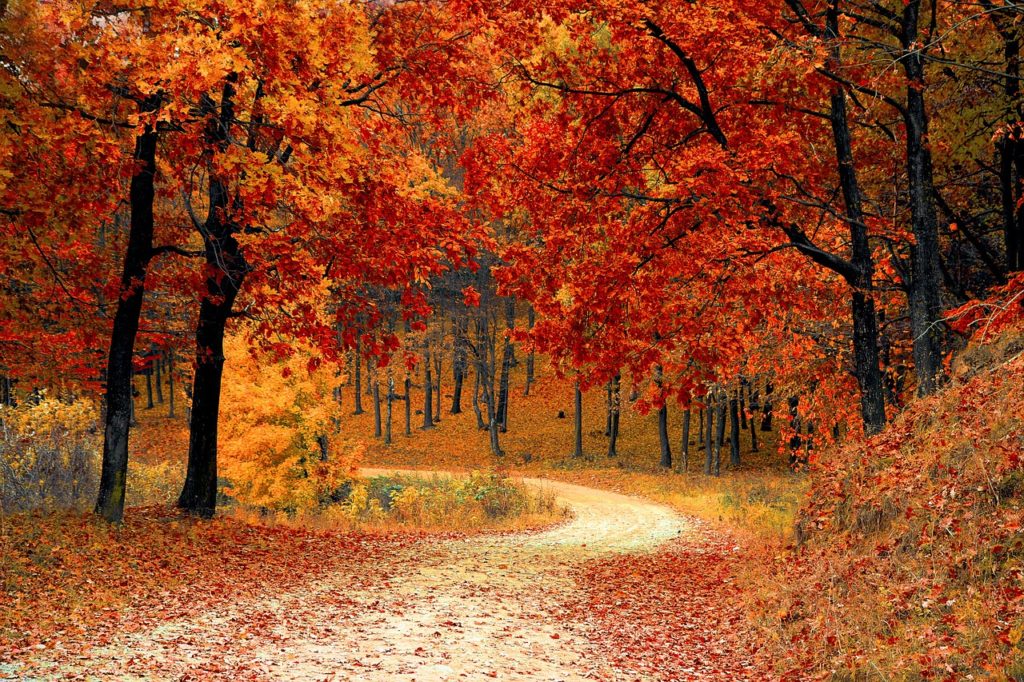
Fall is a time of moving inward as the energy of Summer begins to descend in preparation for Winter. The cycle has reached it’s peak and it is time to let go of the excess that was generated in the summer cycle and use the heat to warm the insides until Spring. Leaves turn brown and begin to fall, blanketing the ground in a compost to warm and protect it until Spring. Fall is traditionally the season to harvest, to hone what you have produced and refine it into a final, mature product. The days are shortening and becoming darker.
Begins at the Autumnal Equinox. In the Northern Hemisphere, this occurs around September 21; and in the Southern Hemisphere, around March 21. On the equinox, day and night are of equal length.
Natural cues: The days are getting shorter and the air is cooler, especially at night. Cloudy, overcast, or rainy days become more frequent. Kids go back to school; farmers work long hours for the harvest; summer vacations are over. We are likely to feel more responsible and less carefree. We unpack our warmer clothes and find comfort in the idea of making soups or chili again. The leaves are changing color and falling from the trees. Plants begin to dry and wither. Things are dying or becoming dormant. Animals are less active, insects are in hiding, and squirrels are gathering nuts for the winter.
Our bodies and minds tend to enjoy a slower pace, reflection, more sleep, lower activity levels, and enjoying the crisp air on our skin. Those who love summer best may feel disappointed and wistful at this time of year, wishing for the long, sunshiny days of summer to return. We tend toward wanting to come inside, organize, and create order in our lives, to recoup from the wild freedom of summer. We feel fulfilled by gathering food, wood, and other items in preparation for the upcoming winter.
In Chinese medicine, Fall is associated with the Metal element which governs the lungs and large intestine. The lungs encourage letting go and releasing grief. With the natural world winding down, it is normal to experience sadness, as well as courage, and at the same time we can look with hope to the future. As the season for colds begins, we need to maintain the health of our lungs (and immune system) by dressing warmer, eating well, and getting plenty of sleep. Fall is also related to the west, the direction of dreams and visions. Fall is the time for choosing what you have produced during the creative fire of spring and summer and releasing what no longer sustains and nourishes you.
Here are some tips for adjusting to the Fall season:
- Breathing fresh air – be sure to get outdoors and do some relaxed breathing, or do some exercise such as swimming and consciously bring awareness into the breath. Breathing into the center of gravity while relaxing the muscles of the chest is also helpful.
- Do stretches to open up the chest and the lungs, as well as singing and or playing wind instruments like the saxophone, trumpet, flute etc.
- Dry brushing the skin (which is considered to be a part of the lung system in Chinese medicine), using a natural bristle brush to lightly brush the skin before showering.
- Wear comfortable clothes and natural fibers to give more freedom for the lungs to breath.
- Get moderate sun, avoiding excessive exposure, as it can damage the skin.
- The virtues of the lung are integrity courage and respect. Being able to appreciate and value yourself and your surroundings is an important way to satisfy and please the intelligence of the lung. Expressing our values nourishes the lungs.
- Pay attention to the physical aesthetics both in terms of personal appearance and in terms of the home environment to support the energy of lung.
- Use the Fall to reflect and to be grateful for the harvest of your life and the year and to let go of all that isn’t serving you in life.
- Eat foods that support the lungs – pears are good for the lungs. Leafy green vegetables like mustard greens, kale, and green and red cabbage are good for the lungs. Also green and yellow and bell peppers, daikon radish, carrots, yams, pumpkin, squash, figs, sesame seeds, apricots, ginkgo nuts, tangerines and other citrus foods.
- Eat plenty of mushrooms, like shitake and maitake – they are also good for the lungs and boost the immune system.
- Avoid dairy as the phlegm produced by dairy can negatively impact the lungs, as phlegm is stored in the lungs and can contribute to congestion and coughs.
- Use herbs like American ginseng (Panax cinquefoils) – this is a great herbs for the lungs and for strengthening the kidneys as well. Astragulus (astragalus membranaceus) and codonopsis (codnopsis pilosula) are two are other herbs that are excellent for lung health. You can buy astragalus and codonopsis powdered from sources such as Mountain Rose Herbs and add them to soup stocks and foods like oatmeal for added immune support during Fall.
- Meditation: Lung healing qi gong sound – Inhale and guide the color white up from your center of gravity to nourish and bathe the lungs. As you exhale, make the lungs sound “Sssss” releasing clearing out any grief sadness and depression which can clog the lungs. Then smile and embrace the lungs with unconditional love and acceptance.
Winter

Winter is the time of year when the natural world becomes still, cold, and quiet and retreats underground. The energy of plants becomes dormant and is grounded and stored deep in the earth in the plant’s roots. The sun sets earlier and rises later, leaving us with longer nights, and more time for rest and stillness. The energy of the earth is literally going underground to germinate and restore itself. In Chinese medicine, the element of water is associated with winter and is associated with the kidneys, or what we in the western world associate with the endocrine system. The kidneys are associated with winter and the water element and are the source of our constitutional or inherited energy, literally our energy reserves.
This season begins with the Winter Solstice, the shortest day of the year. In the Northern Hemisphere this will be around December 21, and in the Southern Hemisphere, around June 21.
Natural cues: The days are short. Temperatures are typically cold. Weather may include more precipitation, snow in colder regions, and increased wind. Trees shed their leaves, plants become dormant, and many animals go into hibernation to conserve energy.
Our bodies tend to want to sleep more, aligned with the shorter periods of daylight. We enjoy taking a slower pace, spending more time indoors, and resting or relaxing.
Chinese medicine indicates that this is a time of reflection and introspection, resting to conserve energy, and renewal so we can prepare for the outburst of life in the spring. In Chinese medicine, winter is also the most yin time of the year. Yin is the feminine energy, the quiet, dark, internal, nurturing, lubricating, moist, energy, often associated with the earth. This yin transforms to the active, substantial, intensity of the yang, or masculine energy (summer). Thus, in order to experience the fullness of richness of summer’s intensity, we need to allow ourselves the stillness and quiet of winter. It is important to remember that we all need regular periods of quiet, as well as activity, be it summer or winter, that winter signals a time to explore these needs in a deeper way than at other points in the year.
Here are some tips for harmonizing winter’s energy:
- Dress warmly, making sure to cover the lower back (the area over the kidneys) and the back of the neck (wearing scarves). Chinese medicine teaches that the external wind responsible for colds, flus, and infections enters by a point on the back of the neck known as the windgate.
- Get plenty of sleep and rest during this time of year – take advantage of the longer hours of darkness and get enough sleep each night. You do not want to become depleted, particularly during this time when energy in our environment is naturally low.
- Eat warming foods, such as soups and stews, roasted vegetables, and beans, being sure to get enough protein. A popular Chinese soup are bone marrow soups, in which the soup is cooked with a cracked bone to add in the deep nourishment of the bone. Vegetarians need to make a special point to get adequate protein by eating beans and whole grains, and making sure to cook vegetables. Vegetables such as peas , greens, sweet potatoes, winter squash, and any root vegetables.
- Reduce your food intake as your activity level decreases, to avoid adding extra pounds.
- Use spices to warm up the energy of a dish and aid in digestion. Spices like garlic, onions, cinnamon, ginger, cardamon, nutmeg, and fennel are all good choices.
- Take time for quiet, stillness, introspection and reflection, as you will be richly supported during the winter as you undertake these practices.
- Use herbs that are warming and tonifying, such as lycii berries, angelica sinensis (dong quai), astragalus, ashwaganda, ginger, cinnamon, and garlic are examples of this type of herb. Herbs that help build and maintain the blood and Qi are especially beneficial (astragalus, dong quai, lycii berries), as well as herbs that strengthen digestion (ginger, ginseng, fennel, cardamom). These herbs are great to cook with or to make hot teas with and will help preserve the body’s reserves of blood and Qi through the cold winter months.
- Meditation: Begin practices such as meditation or yoga that will reduce stress. Stress and anger can reduce your immune system function, which is especially important to maintain during the winter season.Kidney healing qi gong sound – the healing sound for the kidneys is chuu. Imagine a blue color filling the kidneys from your center of gravity, release fear, fright, trauma and shock. Hug your legs below the knee or put your hands and your knees as you make the sound and release the emotion of fear. Continue making the sound chuu and releasing fear. Then smile to your kidneys, send them unconditional love and acceptance. Then fill with wisdom, a sense of gentleness and stillness.
You might also like:
=====> Qigong For Happiness, Health And Vitality
Original article published by 4 Branches Chinese Medicine Center






![Day 17 – Reaching the Creative Solution [Oprah and Deepak Chopra Teachings]](https://www.forevernaturalwellness.com/wp-content/uploads/2017/05/heart2-150x150.jpg)


